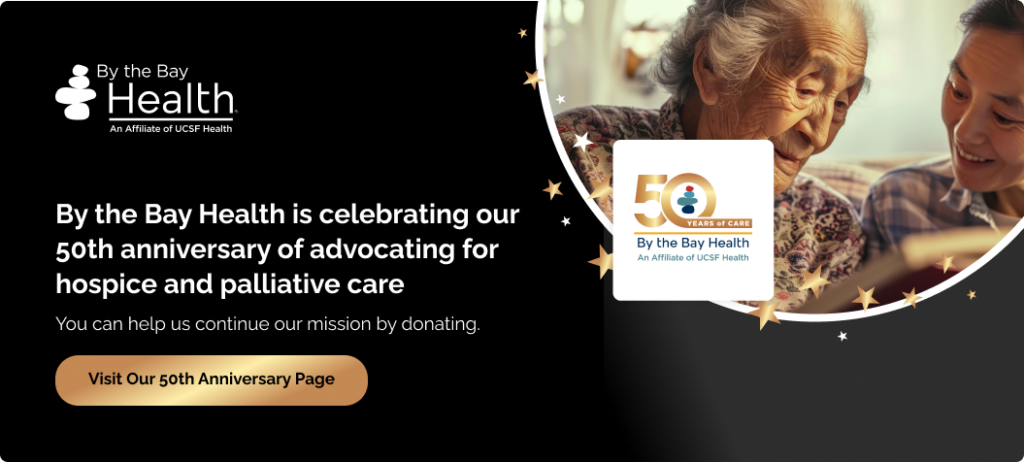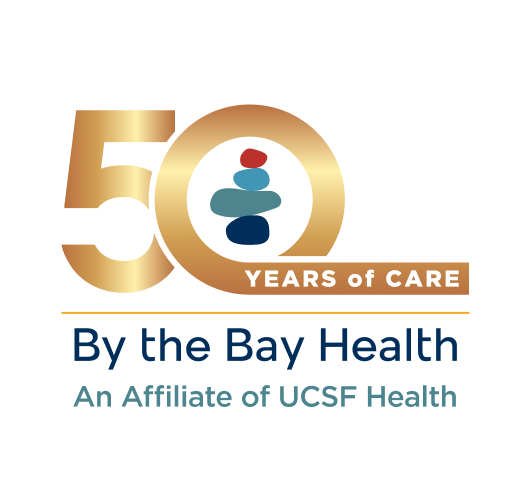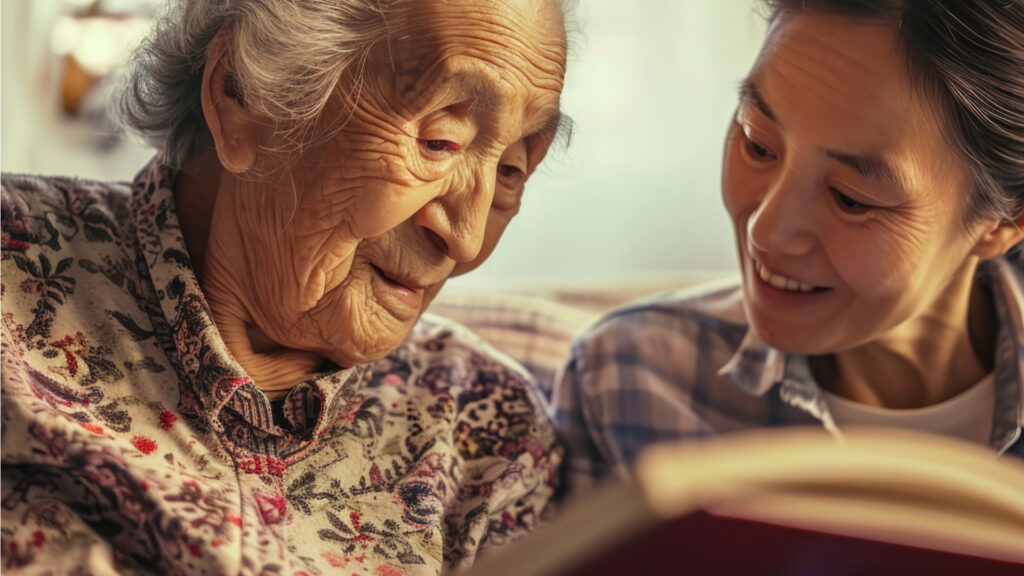Historically, hospice care in the United States has been more accessible to white men and women, leaving a gap in quality end-of-life care for diverse populations, including racial and ethnic minorities and the LGBTQ+ community.
At By the Bay Health (BTBH), we recognize these disparities, and we’re on a mission to make hospice and palliative care accessible to everyone — regardless of race, sexual orientation or gender identity.
As our Chief Executive Officer Skelly Wingard puts it: “How incredible would it be if there was perfect equity? Where you are able to get the same care whether you live in rural Sonoma County as you can in more affluent communities? That’s what we’re striving for.”

Understanding historical gaps in hospice care
Studies have shown that hospice services in the U.S. reflect broader disparities in healthcare access and quality. The reasons for these disparities are complex, rooted in socioeconomic factors, healthcare biases, cultural differences and a lack of community outreach.
Some groups, such as Black, Hispanic, Asian and Native American populations, have been less likely to access hospice care. This discrepancy may stem from a combination of mistrust in the healthcare system, a lack of awareness about hospice services, language barriers and financial limitations.
Additionally, systemic biases in healthcare often mean that nonwhite individuals receive fewer referrals to hospice services or face delays in accessing them. These inequities deny many people the chance to experience the quality of life and comfort that hospice and palliative care can offer at the end of life.
Our mission to transform hospice care for everyone
BTBH is committed to closing these gaps by striving to make hospice and palliative care accessible and equitable for all communities. Our mission is grounded in the belief that everyone deserves compassionate, high-quality end-of-life care, regardless of their background or identity.
Here’s how we’re working to ensure that no one is left behind.
1. Expanding outreach to underserved communities
BTBH actively engages with underserved communities to increase awareness of hospice and palliative care. We recognize that, for many, the concept of hospice can be unfamiliar or misunderstood. That’s why we focus on community education, demystifying hospice services and clarifying how these services can support families in some of the most challenging times.
With the help of local organizations, community centers, and healthcare providers, we are reaching individuals who might not otherwise have access to information about hospice. Our outreach initiatives involve cultural and language-sensitive materials designed to resonate with diverse audiences and address common concerns or misconceptions about end-of-life care.
2. Building trust in communities of color
Historical inequities in healthcare have created deep-rooted mistrust among some communities of color, particularly Black and Native American populations. We understand that this trust can’t be built overnight; it requires ongoing, genuine efforts.
At BTBH, we strive to earn this trust by respecting the unique cultural beliefs and needs of each community. Our approach includes hiring a diverse staff that reflects the communities we serve, offering cultural competency training and ensuring that our care providers are sensitive to the spiritual and cultural needs of each individual. We also listen to the concerns of patients and their families, recognizing that trust is a cornerstone of quality healthcare, especially in end-of-life settings.
3. LGBTQ+ inclusion
Another critical aspect of our commitment to equity is ensuring that LGBTQ+ individuals, including transgender people, feel safe and supported in accessing hospice and palliative care.
For decades, LGBTQ+ individuals have faced unique challenges in healthcare, including discrimination, a lack of understanding from providers and barriers to respectful, inclusive care.
Unfortunately, these issues have also affected their access to end-of-life care, which can be a particularly vulnerable time. At BTBH, we are committed to providing a welcoming space for all individuals, regardless of sexual orientation or gender identity. We believe that everyone deserves to feel comfortable and affirmed in their identity, especially in their final stages of life.
To that end, our staff is focused on offering respectful, affirming care to patients and their families. By creating a safe, inclusive environment, BTBH empowers LGBTQ+ individuals to receive the compassionate care they deserve.
4. Addressing language barriers and financial limitations
Language barriers can make it difficult for individuals to understand the benefits and services of hospice care, especially for non-English speaking communities. BTBH is committed to breaking down these barriers by offering multilingual support and materials that explain our services in accessible terms.
An example of this is our bilingual, all-Chinese, multidisciplinary team, which provides culturally sensitive care to Chinese patients where they are most comfortable, which is usually inside their own homes.
Financial concerns also prevent many from considering hospice care. BTBH works with patients and families to navigate financial challenges and explore available options. We accept Medicare, Medicaid and private insurance and offer additional financial support for those who may not be able to afford care. Our goal is to remove financial obstacles that might otherwise prevent individuals from accessing the compassionate care they deserve.
5. A commitment to equity,diversity and inclusion in staff and leadership
True commitment to equitable care starts from within.
At BTBH, we strive to build a workforce that reflects the diversity of the communities we serve. Our leadership and staff include individuals from a variety of backgrounds, creating a team that is not only culturally aware but also deeply invested in understanding and respecting the needs of each community.
By fostering an inclusive work environment, we can ensure that our caregivers, social workers and healthcare providers bring a broad perspective to each patient interaction. This approach allows us to deliver care that is respectful, culturally competent and responsive to the unique experiences and identities of all our patients.

Why equitable hospice and palliative care matters
The end of life is a deeply personal journey, and each individual deserves to experience it with dignity, respect and comfort. Ensuring that hospice and palliative care are accessible to everyone is a matter of social justice, compassion and human rights. By working toward equitable access, BTBH is not only improving the lives of individuals but also strengthening the broader healthcare system and making it more inclusive.
In many ways, hospice care is a reflection of how we value and care for each other. When certain communities are left out, it sends a message that their lives are less valuable. By striving for equitable hospice and palliative care, BTBH aims to send a different message — that every life matters, and every person deserves compassionate care, regardless of their race, background or identity.
Moving forward
Our vision for the future is clear: a world where hospice and palliative care are genuinely accessible to all.
Achieving this goal will take time, dedication and a willingness to confront the systemic inequities that exist within healthcare. But at BTBH, we are committed to this journey, knowing that it’s the right thing to do for our patients and our community.
Our promise is to continue listening, learning and adapting to the needs of the people we serve. Through expanded outreach, ongoing education and a steadfast dedication to inclusivity, we’re confident that we can make a difference in the lives of those who need us most.
By the Bay Health is celebrating our 50th anniversary of advocating for hospice and palliative care. You can help us continue our mission by donating. Visit our 50th anniversary page to learn how you can contribute.



